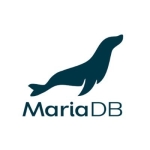What is our primary use case?
The solution is the main database storage for the application that we have. We offer an online purchasing system to our major customer, which is a government. They deal with their purchasing through the solution.
How has it helped my organization?
The organization can't function without it working properly as there would be a lot of upset people complaining. It's fairly integral to the overall functionality of the company.
What is most valuable?
The solution's most valuable aspect is its reliability. In about 17 years, I believe I may have lost about 15 minutes worth of data.
Overall, the solution works very well. It has excellent performance.
The solution is very stable.
Especially with VMs, the solution can scale well.
What needs improvement?
I'm not crazy about their new version plan that they've just started. It seems like it turns over too quickly. We may have to upgrade within the year, and I really am not crazy about that. I don't want to upgrade so soon. We may not have a choice.
The initial setup is a bit complex.
Technical support could be more consistent.
They used to have something called a database console in version 11. That was very good. It seems like they reduced its functionality over the past couple of versions. I'd like to see that back to the way in which it used to be.
For how long have I used the solution?
I've been using the solution for 17 years. It's been over a decade - in fact, it's almost been two.
What do I think about the stability of the solution?
The solution is very stable. There aren't bugs or glitches. It doesn't crash or freeze. It's quite reliable.
What do I think about the scalability of the solution?
The scalability of the solution is quite good. If a company needs to expand, it can do so relatively easily.
When you were just with bare metal, it wouldn't be as good as it is now with virtual machines as it does not take a lot to spin up another virtual machine and put Oracle on it and have it working. In the old days, when you had a piece of metal, you had to find another piece of metal, get it installed, and then start scaling up from there. With the VM, it's a lot better.
How are customer service and technical support?
I'd rate technical support seven out of ten. They could improve it a bit.
There've been times in which it's been absolutely tremendous. Then there've been other times where it just seemed to take too long. Either the person didn't know enough and had to go to other people and such, and it just took way too long. It's been mixed in terms of results. It's not exactly consistent.
Which solution did I use previously and why did I switch?
It's my understanding that the company has always used Oracle. The company I've been with has been with Oracle for pretty much all of its life. I haven't seen any other solutions.
How was the initial setup?
The initial setup isn't straightforward. It's a bit complex.
With the setup of it, you need operating system people, whether it be Linux or Windows or whatever operating system, and they need to be coordinating with you. Usually, we're just putting the software on top of an operating system. However, with this, it's just not something that you can just throw out there. You need to have some preparation done, whether it be a VM or a piece of metal.
In implementing the product, the product has gotten simpler to implement over time. Whether you choose to use the cloud or whether you choose to have it on-premises, it has gotten simpler to install. However, that doesn't mean that there isn't preparation that you need to do in regards to the operating system and having everything ready for it.
We have two DBAs, myself and another person. As far as mainline support, we have a couple of units admins that manage the VMs and the hardware that we still have at the moment. And we have some Windows admins, which help with the web interface to the database with the application.
What about the implementation team?
It's best to have some professionals assist with the setup.
What other advice do I have?
We're just a customer and end-user.
I've used various versions of the solution, starting with 10 and moving to 18. We're still a few versions back, and therefore aren't using the latest. The latest is 20 and they are about to release 21.
I'd advise those considering implementing the solution to do some preparation beforehand. This will help ensure a successful setup.
I would rate the solution nine out of ten. There are some improvements that can be made here and there. However, it's largely stable and works well.
Which deployment model are you using for this solution?
On-premises
Disclosure: I am a real user, and this review is based on my own experience and opinions.















